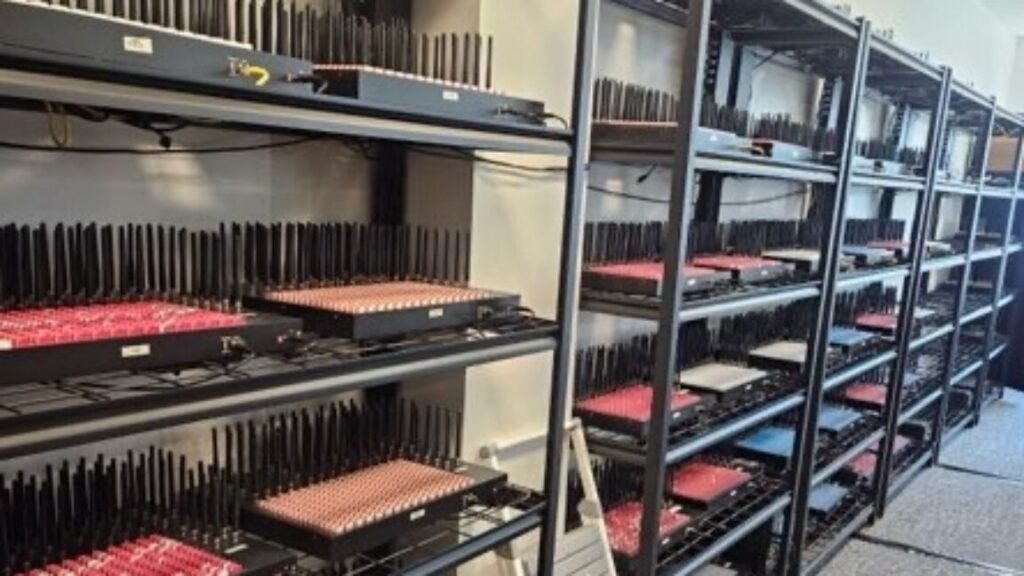US uncovers 100,000 SIM cards that could have “shut down” NYC cell network
The US Secret Service announced this morning that it has located and seized a cache of telecom devices large enough to “shut down the cellular network in New York City.” And it believes a nation-state is responsible.
According to the agency, “more than 300 co-located SIM servers and 100,000 SIM cards” were discovered at multiple locations within the New York City area. Photos of the seized gear show what appear to be “SIM boxes” bristling with antennas and stuffed with SIM cards, then stacked on six-shelf racks. (SIM boxes are often used for fraud.) One photo even shows neatly stacked towers of punched-out SIM card packaging, suggesting that whoever put the system together invested some quality time in just getting the whole thing set up.
The gear was identified as part of a Secret Service investigation into “anonymous telephonic threats” made against several high-ranking US government officials, but the setup seems designed for something larger than just making a few threats. The Secret Service believes that the system could have been capable of activities like “disabling cell phone towers, enabling denial of services attacks and facilitating anonymous, encrypted communication between potential threat actors and criminal enterprises.”
So many empty SIM card packages… Secret Service
Analysis of data from so many devices will take time, but preliminary investigation already suggests that “nation-state threat actors” were involved; that is, this is probably some country’s spy hardware. With the UN General Assembly taking place this week in New York, it is possible that the system was designed to spy on or disrupt delegates, but the gear was found in various places up to 35 miles from the UN. BBC reporting suggests that the equipment was “seized from SIM farms at abandoned apartment buildings across more than five sites,” and the ultimate goal remains unclear.
While the gear has been taken offline, no arrests have yet been made, and the investigation continues.
US uncovers 100,000 SIM cards that could have “shut down” NYC cell network Read More »

